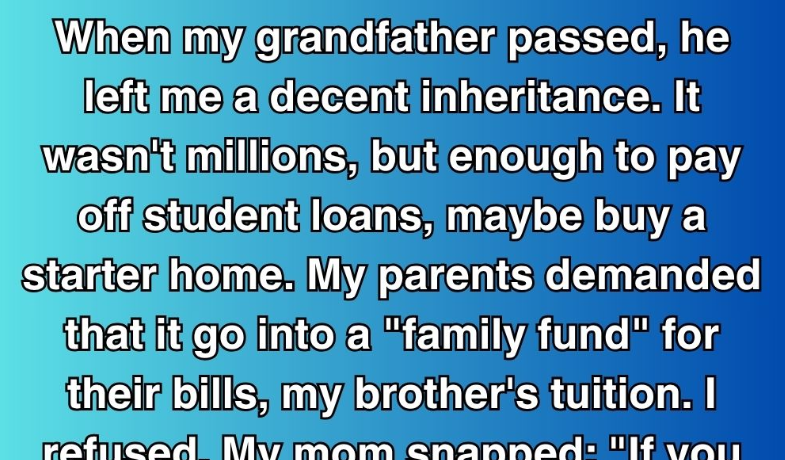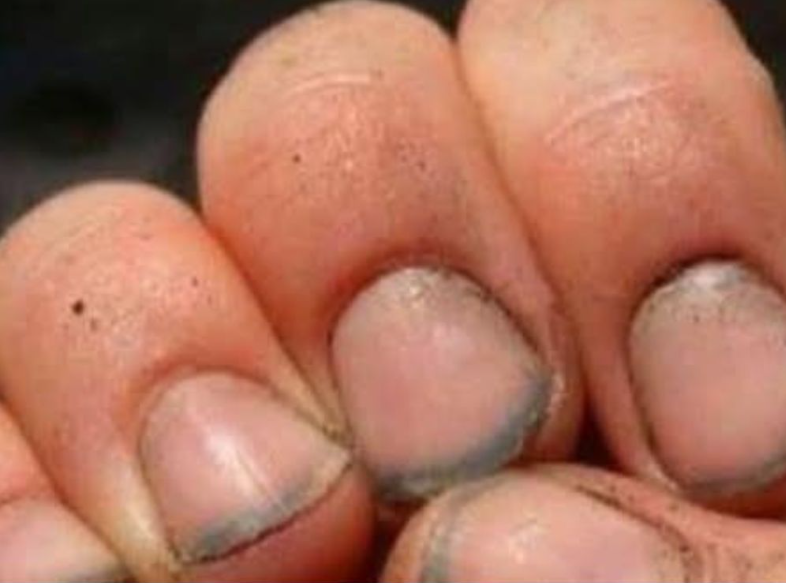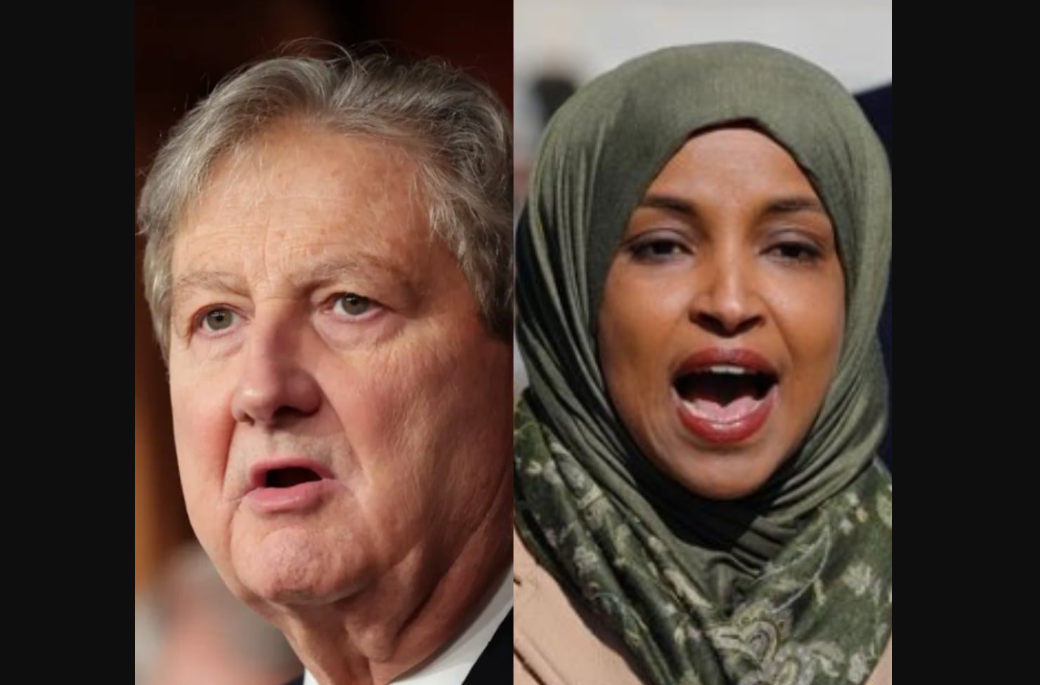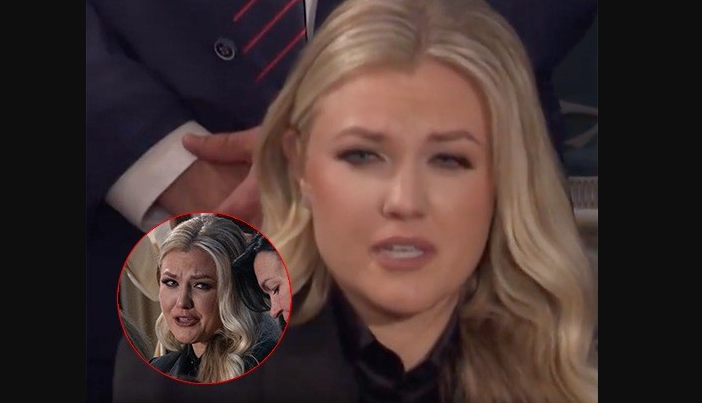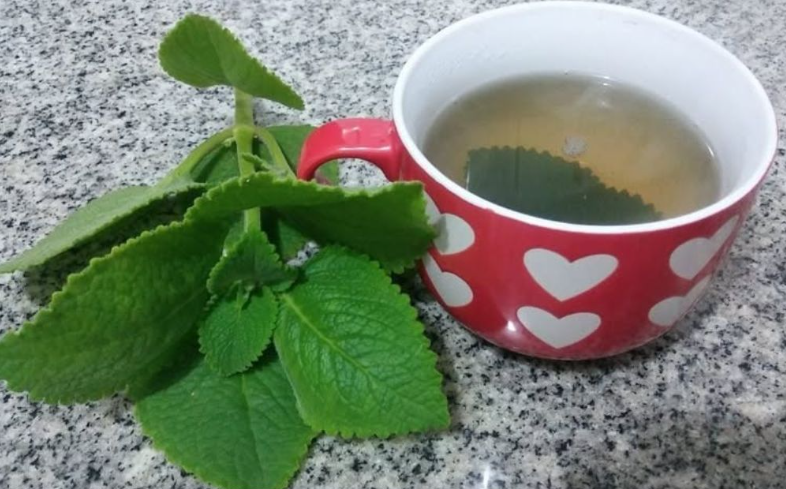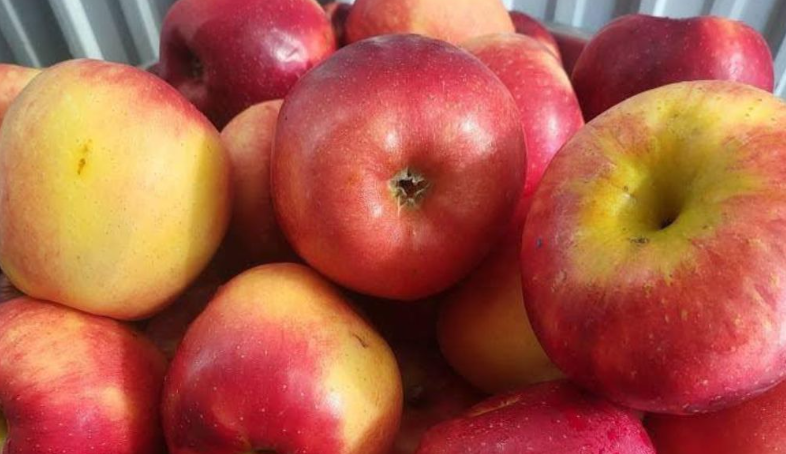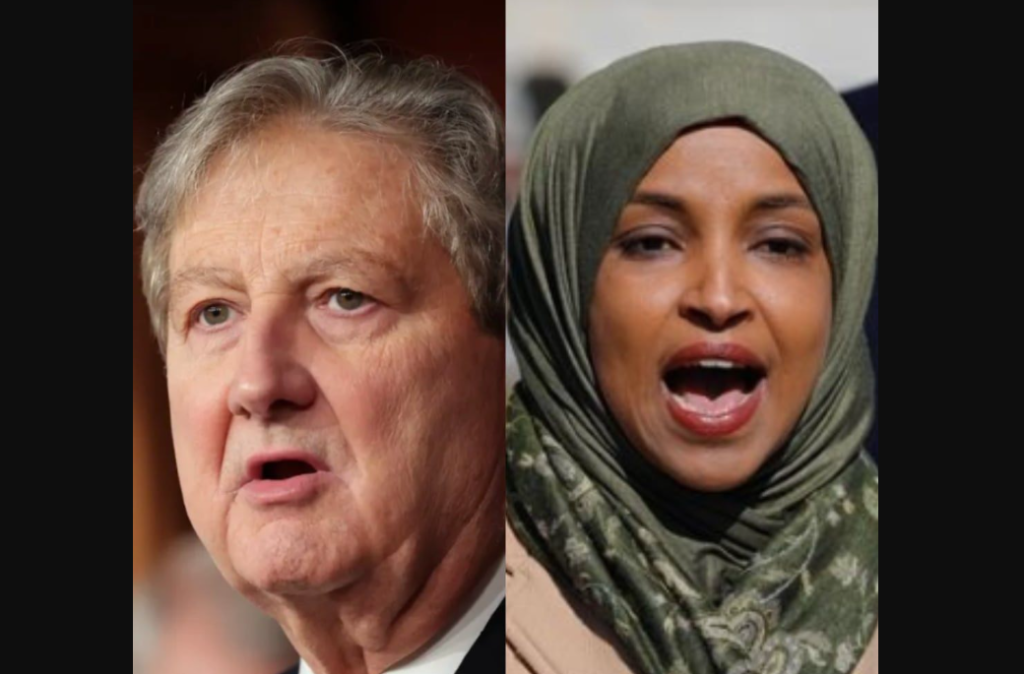When my grandfather passed away, he left me a meaningful inheritance. It wasn’t a fortune, but enough to clear my student loans and perhaps buy a modest home. My parents insisted it should go into a “family fund” to cover their expenses and my brother’s tuition. I declined. My mom’s voice turned sharp: “If you keep it all, don’t expect us to stay close.” I walked away. Later, my Aunt Rina sent me a letter from Grandpa.
It turned out Grandpa had anticipated the family tension.
The letter was handwritten, his script a bit unsteady but clear. He’d hidden it inside a carpentry book, instructing Aunt Rina to deliver it to me if things went wrong. He opened with a lighthearted note—hoping the money would give me a stronger start than he’d ever had—then turned serious.
He wrote that he didn’t trust everyone in the family with money. Especially not my parents.
He’d never voiced it aloud, but there it was, in ink. He knew my dad had misled him for years about work struggles, borrowing money without repaying. He wrote, “You work diligently. You care for others. Don’t let guilt sway you from what’s yours.”
Tears came as I read those words.
Grandpa and I weren’t particularly tight when I was young. He was reserved, quiet at family gatherings. But I always admired his calm presence. Steady. After college, we grew closer—he’d ask about my internships, share career tips, send me quirky science articles I loved. I hadn’t realized he’d noticed so much.
I paid off my student loans first. The freedom from that debt was immense. Then I bought a small condo on the edge of town—simple, but mine. Peaceful. I picked up extra shifts at work, saved carefully, lived simply. The money was a foundation, not a way of life.
My parents saw it differently.
My mom called weekly for nearly three months after the inheritance. Sometimes she’d be warm, asking about my job or if I was eating well. Other times, she’d weave in pointed remarks like, “Your brother can’t enroll for spring classes unless we pay soon,” or “The bank might take the house if we don’t get an extension.”
My dad stayed silent. Not a single call.
The family barbecue that July changed everything.
I almost didn’t go. But my cousin Roohi pleaded—she was turning 16 and wanted everyone there. So I went, kept it lowkey. Brought a solid side dish, wore jeans, nothing showy.
But the moment I stepped onto the back patio, I felt the air shift. Eyes turned to me differently. Like I was an outsider, or worse, a betrayer.
My mom barely greeted me. My dad said nothing.
Midway through dinner, my uncle raised a glass—to family, to “those who always prioritize others.” Everyone clapped. Then he looked at me and added, “And may selfishness never tear us apart again.”
I stood quietly, took my plate inside, tossed it in the bin, and left without a word.
That night, I wept harder than I had in years.
Not over the money. Because I realized they didn’t truly see me. They saw what I could provide, or what they thought I owed them. When I stopped filling that role, they treated me like a stranger.
I stopped taking their calls after that.
It wasn’t simple. I missed my brother at times. We’d been close as kids. But he never reached out. No apology. No check-in to see how I was.
I kept moving forward. Quietly. I earned a promotion. I started volunteering at a community center, helping kids with resumes and college applications. It gave me a sense of purpose my corporate job couldn’t.
Then something unexpected arrived.
A Facebook message from someone named Lara, a name I didn’t recognize at first. Her profile showed a dog and some trees, nothing distinct. But when I read her message, I froze.
“Hi. This might sound strange. I think we’re cousins. Your grandfather was my grandfather too.”
It turned out Grandpa had a daughter no one mentioned. He’d had her before marrying my grandmother—at 19, scraping by with odd jobs, living in a friend’s garage. The mother had left the state with the baby after a dispute with Grandpa’s parents. He never saw them again. But he’d kept track, discreetly.
Lara grew up knowing she was “adopted from a tough situation.” After her mom passed, she found old papers, including letters from Grandpa. One listed a recent address—my Aunt Rina’s.
She reached out. Aunt Rina connected her to me.
I didn’t know how to respond.
We messaged for days, then met in person. She was bright, quick-witted, a bit reserved. She’d grown up with little—a single mom, food stamps, constant moves. She’d built a decent life—community college, now an admin at a law firm—but it hadn’t been easy.
She showed me one of Grandpa’s letters. He’d written, “I can’t undo the past. But I hope one day this side of the family embraces you.”
I wanted to honor that.
We started meeting weekly, grabbing coffee at her favorite bakery. She met Roohi, and they hit it off instantly. Slowly, I introduced her to the small circle I still trusted—a few cousins, my best friend Maëlle, some coworkers.
One evening, over dinner, Lara broke down.
She’d been diagnosed with endometriosis years earlier. Painful. Surgeries. She was managing now, mostly. But she’d always dreamed of becoming a nurse, returning to school. She could never afford it. She said it lightly, like she’d made peace with it.
That night, I thought of Grandpa. And the money.
I still had some left. Not a lot, but enough.
I called Aunt Rina, asked about the remaining inheritance. She paused, then revealed a separate account Grandpa had set aside. She hadn’t told my parents. His note read: “For anything that unites people. Let her decide.”
Her. Me.
I used some of that money to cover Lara’s nursing school.
She cried, then laughed, then cried again. I told her it wasn’t a handout. It was family—the kind Grandpa had envisioned, even if others didn’t.
Word spread, of course.
My mom sent a long, angry email, saying I’d “chosen a stranger over my own blood.” I didn’t respond.
But then things shifted.
Months later, my dad fell ill. Seriously ill. He’d hidden it—liver issues from years of drinking. Hospital stays, lost work, the works. Suddenly, my brother was calling. My mom too.
They didn’t fully apologize. But they asked for help.
For the first time, I didn’t refuse.
Not because they earned it. Because I needed peace.
I offered to meet. We chose a diner—neutral ground, no drama. I laid everything out: the inheritance, the pain, how they’d pushed me away when I wouldn’t surrender my future.
My mom cried. My dad stared at the table like it might swallow him.
They didn’t fight back. They listened.
When I finished, I said, “I’ll help, but I won’t be used again. If we’re going to be family, it has to be honest.”
It wasn’t perfect. Nothing healed instantly. But it was our first real talk in years.
Over time, we built something new. Not what we had before, but something stronger, because it was genuine. My dad entered recovery. My brother took a part-time job, starting to pull his own weight.
And Lara?
She’s a nurse now. Graduated last spring, top of her class. I was there, sobbing like an idiot in the third row. She gave me a huge hug and whispered, “He’d be proud of you.”
I think he would be.
The real revelation wasn’t the money or the secret daughter. It was this: Grandpa didn’t only leave me funds. He gave me the strength to set boundaries, to carve my own path, to choose who belonged in my life.
It’s not about shutting people out to feel strong.
It’s about choosing who to grow with.
Sometimes family is the one you’re born into. Sometimes it’s the one you create.
If you’ve ever had to make a tough call to protect your peace, know it’s okay. It doesn’t make you harsh. It makes you courageous.
And if you’ve been waiting for someone to return, maybe offer them a chance—if they’re ready to meet you halfway.
Thanks for reading. If this resonated, feel free to like or share ❤️
